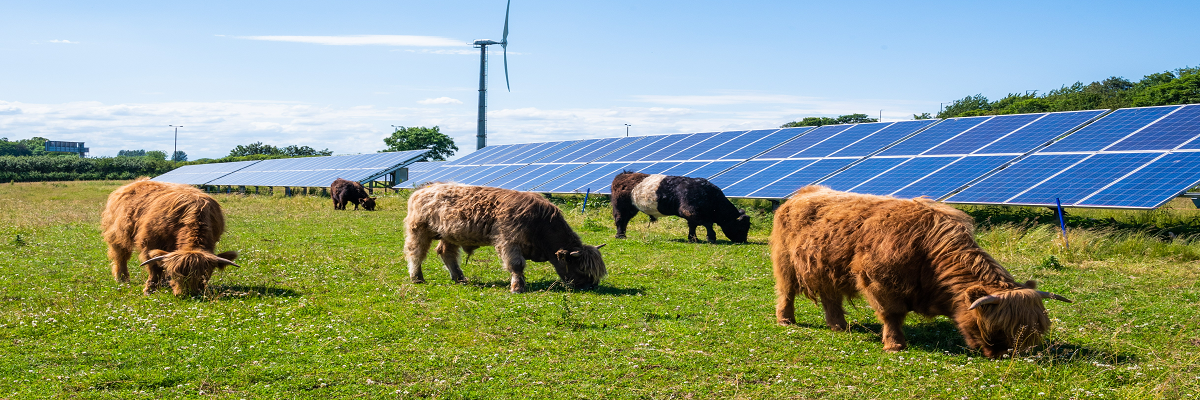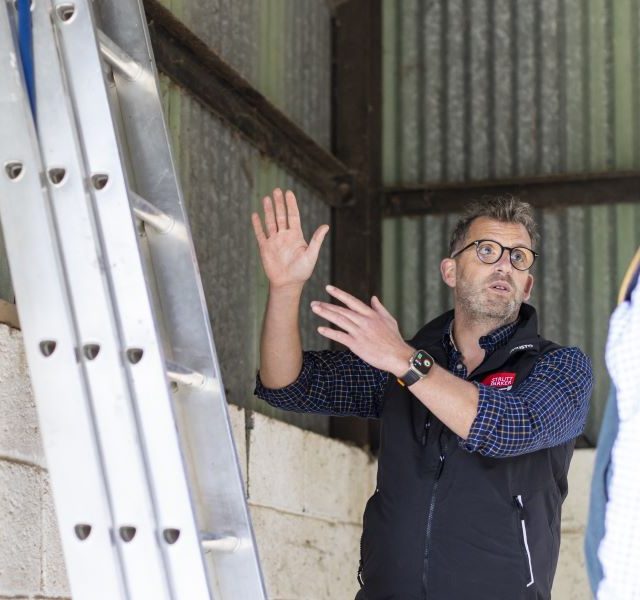Land Business Update | Week Commencing 24 June 2024
Farming
Leading farm carbon calculators sign agreement to harmonise their methodologies
The agreement between Farm Carbon Cutting Toolkit, Cool Farm Alliance and Agrecalc is good news and should increase consistency between the tools, which is what we think is needed to build confidence in their outputs. They hope that the joint work becomes the ‘agreed way’ and the minimum standard for all calculators to adopt.
Latest data on livestock numbers in the EU
This data is always useful for context when discussing subjects like land use change and food security. The EU is expected to continue to produce more than 100% of expected consumption for beef, pigmeat and poultry. This is despite livestock numbers for all species falling over the past ten years, with cows falling by 5%, sheep by 9% and pigs by 6%. Looking forward, meat consumption per person per year in the EU could decline by about 2% or 1.6 kilos between now and 2035.
Energy
The challenge of getting planning permission for renewable energy projects
Over 60% of applications for wind, solar and battery projects submitted between 2018 and 2023 in Great Britain have been refused, abandoned, withdrawn or had their planning permission expire, according to analysis by Cornwall Insight. The data illustrates the challenge of decarbonising energy generation. The actual situation is likely to be slightly less challenging as the data includes multiple (slightly different) applications submitted for the same project but it is nevertheless difficult. More positively, there was a 66% increase in applications for renewable projects in 2023 compared with 2022. The number of projects and the infrastructure to distribute their energy must increase substantially in the next decades.
Environment
Sustainability Disclosure Requirements framework
The Sustainability Disclosure Requirements (SDRs) framework is intended to introduce economy-wide sustainability-related disclosure requirements to facilitate the flow of useful information between businesses, investors, financial markets and consumers. SDRs were first announced by the government in 2021 and confirmed in its most recent Green Finance Strategy (March 2023). The Requirements will be brought in over time (from at least 2025 onwards). It is unclear yet how they may affect the land-based sector but businesses which buy goods (crops and livestock) may trickle down the Requirements to their suppliers. We will keep a watching brief.
Voters can now find out a candidate’s climate stance
Lord Deben, the ex-chairman of the Climate Change Committee, some cross-party colleagues and the Grantham Institute at LSE have put together a website called Climate Election 2024, which details the climate views of candidates in England and Wales from the four parties who have signed up to net zero 2050. It is incomplete – they were working towards to a November election – but it is interesting and important. He says, “The planet that sustains our life is under threat and yet no major party suggests that we should be on a war footing to save it.” He also makes the point that we have also to act individually. “In our own decisions and in those of each organisation to which we belong, we must insist on looking at every choice through the climate lens. The golf club; the church; the book club; the football team, we can influence them all.” If you have any information on any candidates, it can be sent to climate.election2024@lse.ac.uk .
EU passes historic nature restoration law
The EU has finally adopted the landmark Nature Restoration Law but it needed the vote of the Austrian minister, who faces legal action from her own party which says she acted unlawfully, to become law. It had been deadlocked for months. The law requires member states to jointly restore at least 20% of the degraded ecosystems in their country’s land and seas by 2030, and all ecosystems in need of restoration by 2050. It is one of the main ‘Green Deal’ policies aimed at achieving the EU’s overarching objectives on climate mitigation, adaptation and food security. It sets legally binding targets for nature restoration. Following pressure from farm lobby groups, it includes an ‘emergency brake’ so measures affecting agriculture can be suspended ‘under exceptional circumstances’ if there is a threat to food security. The climate thinktank E3G said, “No other part of the world has this little nature left, needed this law more and got so close to not having it.”
Forestry
UK woodland planting up but still a third below target
20,660 hectares of new woodland was planted in the UK in the year ending 31 March 2024. This is the highest figure since the mid-1990s and nearly 60% higher than the year before. S&P comment from Simon Hart, our Head of Forestry in Scotland: It is clearly a step in the right direction but it is still only two-thirds of the government’s target of 30,000 hectares. The biggest increase has been in the planting of broadleaves. This is fantastic news for nature conservation, but it is imperative that we do not lose focus on the importance of conifers, which are essential if we want to reduce our reliance on timber imports and take steps to decarbonise our economy. The biggest challenge now is around how to keep the momentum going. The level of bureaucracy involved in putting a planting scheme together remains a significant barrier to greater uptake. If you would like to discuss this or a tree planting project, please contact Simon Hart.
Property
Licensing regime opened to use glue traps for rodent control
The use of glue traps for rodent control in England and Wales is banned from 31 July unless done under a licence. Licences will only be issued to professional pest controllers for the purpose of preserving public health and safety, and glue traps will only be permitted for use in exceptional circumstances where there is no alternative satisfactory solution. The Glue Traps (Offences) Act 2022 aims to improve humaneness for target rodents, but also other animals that can become accidentally trapped.
Main grants scheme for village halls reopens
Village hall management committees can apply for grants of £7,500 to £75,000 from ACRE to use to cover up to 20% of the capital costs of renovation and improvement projects (not repairs, which can be funded under the Rural Community Buildings Loan Fund). The grant will remain open until funding is exhausted and project work must be completed by 31 March 2025. Smaller grants up to £5,000 have been awarded to over 100 applicants but the scheme is now closed.






